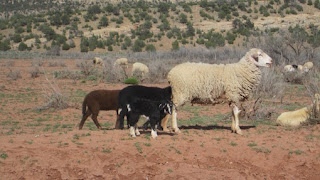I was seeking obscure words to use for the workshop I’m teaching
on vocabulary acquisition, and I ran across the word NIPTER: Religious Foot
Washing. It reminded me of an incident this summer.
Many churches send teams to the Navajo Nation to help in various
ways. In June a team came from Texarkana: some prepared a week-long Bible
School and others did Free Foot-Care Clinics throughout the Rez. Because diabetes is prevalent and causes the
feet to be especially susceptible to injury and infection, this is a needful
ministry for the Navajo. One purpose of the clinics is to reeducate or
re-enforce the importance of foot care, especially for those who are diagnosed
with pre-diabetes or diabetes.
Since one such clinic was held at Hilltop, we found
ourselves involved. Upon entering the school, the guests were welcomed with
respect and care. Their vitals were taken. As blood pressure and oxygen levels
were recorded, patients heard a litany of tips for good foot care.
The registered nurse or podiatrist then inspected the feet
and instructed the people on how to inspect their own feet using a mirror to
see the hidden areas. The nurse would refer them to their local clinic if there
were problems.
Then the patients were steered to the foot washing stations.
The ladies and gentlemen there gently washed the feet, patted them dry, and
applied lotions, all the while conversing with the clients -- asking questions
and showing heartfelt interest in the answers. It was important for the washers to recognize
a diabetic foot condition because a diabetic’s feet should not be soaked in
soapy water. (It actually causes them to become more dehydrated and cracking
and bleeding might ensue. Rinsing and creaming would be called for in that
situation.) After clean socks were offered, the washer gently took the hands of
the client, looked him/her in the eyes and offered to pray for any particular
needs or requests. That was a lovely time. I was overwhelmed by the model of
Jesus in the humble washing ceremony, but the most beautiful thing was seeing
the pairs of strangers bowed in prayer.
The goal of one of our sister churches is to set up monthly
foot care clinics with fully equipped teams – those that do the intake, the
foot exam, and three stations for the foot washing. There are also background
people who clean up and replenish supplies. The whole team might be as many as
20 people. They will have training
sessions for their volunteers as needed.
People have been softened to Christianity by the Biblical
aspect of foot washing. One commented, “It is good to know that there are
church programs that are doing something out of the box in order to reach out
and spread the Word.”
 |
| This is a friend from church. |
Of course, I had the audacity to snap a picture (without
asking) and the person immediately put her hand out asking for money. It was a
joke (sort-of), but she explained that so many people come to the Rez to take
photos of Navajos just to make money off of them, so the Navajos don’t feel bad
about asking for their ‘cut.’ She reminded me that it is always polite to ask
before taking pictures. (oops)
We are not exactly washing feet, but we are trying to model
Jesus in showing a willingness to humble ourselves to His Lordship and be
committed to serve and do something bigger than ourselves. Diabetes and sin are
insidious as they make inroads into the body and soul.
Thank you for your prayers for us.
 1) We’ve had a good break with Labor Day and Fair Days. Now
we have school non-stop for seven weeks.
1) We’ve had a good break with Labor Day and Fair Days. Now
we have school non-stop for seven weeks.
2) The Naas family has moved in and seems to be adjusting.
Continue to pray for Bill and Laura and their teen-children as they see how the
Lord is fitting them in here at WIM and HCS.
 |
| Studying roots was great. We got to dig in the mud. |
 |
| Enjoying the school garden. |








